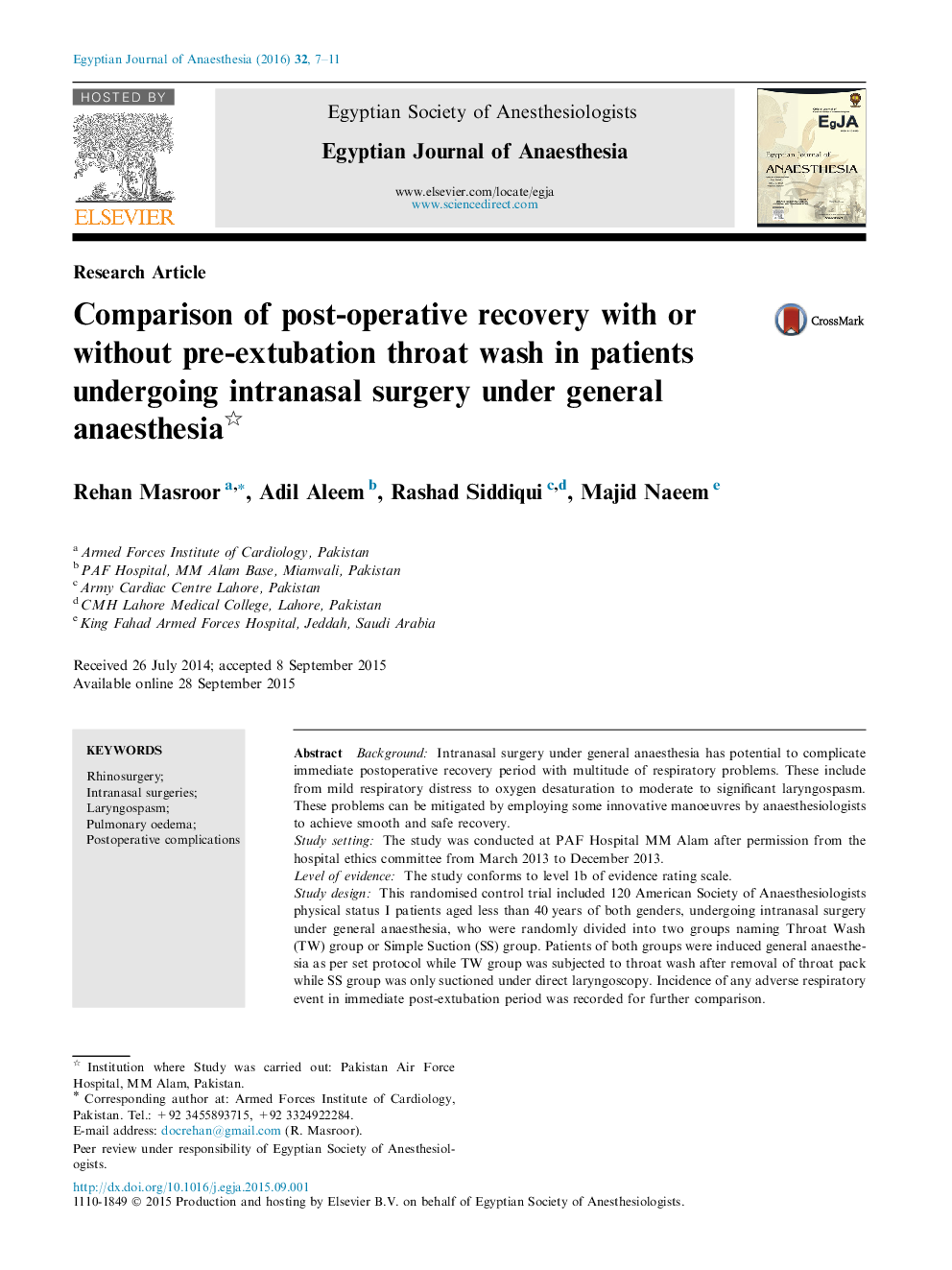| Article ID | Journal | Published Year | Pages | File Type |
|---|---|---|---|---|
| 2756205 | Egyptian Journal of Anaesthesia | 2016 | 5 Pages |
BackgroundIntranasal surgery under general anaesthesia has potential to complicate immediate postoperative recovery period with multitude of respiratory problems. These include from mild respiratory distress to oxygen desaturation to moderate to significant laryngospasm. These problems can be mitigated by employing some innovative manoeuvres by anaesthesiologists to achieve smooth and safe recovery.Study settingThe study was conducted at PAF Hospital MM Alam after permission from the hospital ethics committee from March 2013 to December 2013.Level of evidenceThe study conforms to level 1b of evidence rating scale.Study designThis randomised control trial included 120 American Society of Anaesthesiologists physical status I patients aged less than 40 years of both genders, undergoing intranasal surgery under general anaesthesia, who were randomly divided into two groups naming Throat Wash (TW) group or Simple Suction (SS) group. Patients of both groups were induced general anaesthesia as per set protocol while TW group was subjected to throat wash after removal of throat pack while SS group was only suctioned under direct laryngoscopy. Incidence of any adverse respiratory event in immediate post-extubation period was recorded for further comparison.Results1.6% patients in TW group developed laryngospasm as compared to 15% patients of SS group (P < 0.0001). 4.8% patients of TW group and 44.9% patients of SS group developed moderate to significant respiratory problems respectively (P < 0.0001). 5% patients in SS group had to re-intubated as compared to none in the TW group (P < 0.00001). Debris recovered during throat wash in TW group included clogs of blood, pieces of bones, cartilage and polyps, rhinolith, and wax from the packing gauze as compared to only some clots of blood in the SS group.ConclusionThroat wash, after removal of throat pack in nasal surgery, ensures clearer airway and decreases the risk of adverse respiratory events in immediate post-extubation period. The adverse sequel due to un-recognised debris in the upper airway is minimised resulting in smooth recovery and rapid discharge from the post-anaesthesia care unit.
